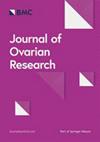Resveratrol ameliorates mitochondrial biogenesis and reproductive outcomes in women with polycystic ovary syndrome undergoing assisted reproduction: a randomized, triple-blind, placebo-controlled clinical trial
IF 3.8
3区 医学
Q1 REPRODUCTIVE BIOLOGY
引用次数: 0
Abstract
This study was designed to examine the effect of resveratrol on mitochondrial biogenesis, oxidative stress (OS), and assisted reproductive technology (ART) outcomes in individuals with polycystic ovary syndrome (PCOS). Fifty-six patients with PCOS were randomly assigned to receive 800 mg/day of resveratrol or placebo for 60 days. The primary outcome was OS in follicular fluid (FF). The secondary outcome involved assessing gene and protein expression related to mitochondrial biogenesis, mitochondrial DNA (mtDNA) copy number, and adenosine triphosphate (ATP) content in granulosa cells (GCs). ART outcomes were evaluated at the end of the trial. Resveratrol significantly reduced the total oxidant status (TOS) and oxidative stress index (OSI) in FF (P = 0.0142 and P = 0.0039, respectively) while increasing the total antioxidant capacity (TAC) (P < 0.0009). Resveratrol consumption also led to significant increases in the expression of critical genes involved in mitochondrial biogenesis, including peroxisome proliferator-activated receptor gamma coactivator (PGC-1α) and mitochondrial transcription factor A (TFAM) (P = 0.0032 and P = 0.0003, respectively). However, the effect on nuclear respiratory factor 1 (Nrf-1) expression was not statistically significant (P = 0.0611). Resveratrol significantly affected sirtuin1 (SIRT1) and PGC-1α protein levels (P < 0.0001 and P = 0.0036, respectively). Resveratrol treatment improved the mtDNA copy number (P < 0.0001) and ATP content in GCs (P = 0.0014). Clinically, the resveratrol group exhibited higher rates of oocyte maturity (P = 0.0012) and high-quality embryos (P = 0.0013) than did the placebo group. There were no significant differences between the groups in terms of chemical or clinical pregnancy rates (P > 0.05). These findings indicate that resveratrol may be a promising therapeutic agent for patients with PCOS undergoing assisted reproduction. http://www.irct.ir ; IRCT20221106056417N1; 2023 February 09.白藜芦醇改善接受辅助生殖的多囊卵巢综合征妇女的线粒体生物生成和生殖结果:一项随机、三盲、安慰剂对照临床试验
本研究旨在探讨白藜芦醇对多囊卵巢综合征(PCOS)患者线粒体生物生成、氧化应激(OS)和辅助生殖技术(ART)结果的影响。56 名多囊卵巢综合征患者被随机分配到每天服用 800 毫克白藜芦醇或安慰剂,为期 60 天。主要结果是卵泡液(FF)中的OS。次要结果包括评估颗粒细胞(GCs)中与线粒体生物生成、线粒体DNA(mtDNA)拷贝数和三磷酸腺苷(ATP)含量相关的基因和蛋白质表达。试验结束时评估了抗逆转录病毒疗法的效果。白藜芦醇明显降低了FF的总氧化状态(TOS)和氧化应激指数(OSI)(分别为P = 0.0142和P = 0.0039),同时提高了总抗氧化能力(TAC)(P 0.05)。http://www.irct.ir ; IRCT20221106056417N1; 2023 February 09.
本文章由计算机程序翻译,如有差异,请以英文原文为准。
求助全文
约1分钟内获得全文
求助全文
来源期刊

Journal of Ovarian Research
REPRODUCTIVE BIOLOGY-
CiteScore
6.20
自引率
2.50%
发文量
125
审稿时长
>12 weeks
期刊介绍:
Journal of Ovarian Research is an open access, peer reviewed, online journal that aims to provide a forum for high-quality basic and clinical research on ovarian function, abnormalities, and cancer. The journal focuses on research that provides new insights into ovarian functions as well as prevention and treatment of diseases afflicting the organ.
Topical areas include, but are not restricted to:
Ovary development, hormone secretion and regulation
Follicle growth and ovulation
Infertility and Polycystic ovarian syndrome
Regulation of pituitary and other biological functions by ovarian hormones
Ovarian cancer, its prevention, diagnosis and treatment
Drug development and screening
Role of stem cells in ovary development and function.
 求助内容:
求助内容: 应助结果提醒方式:
应助结果提醒方式:


